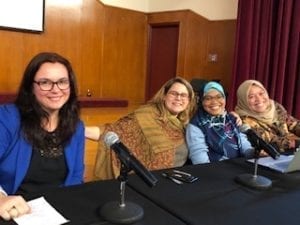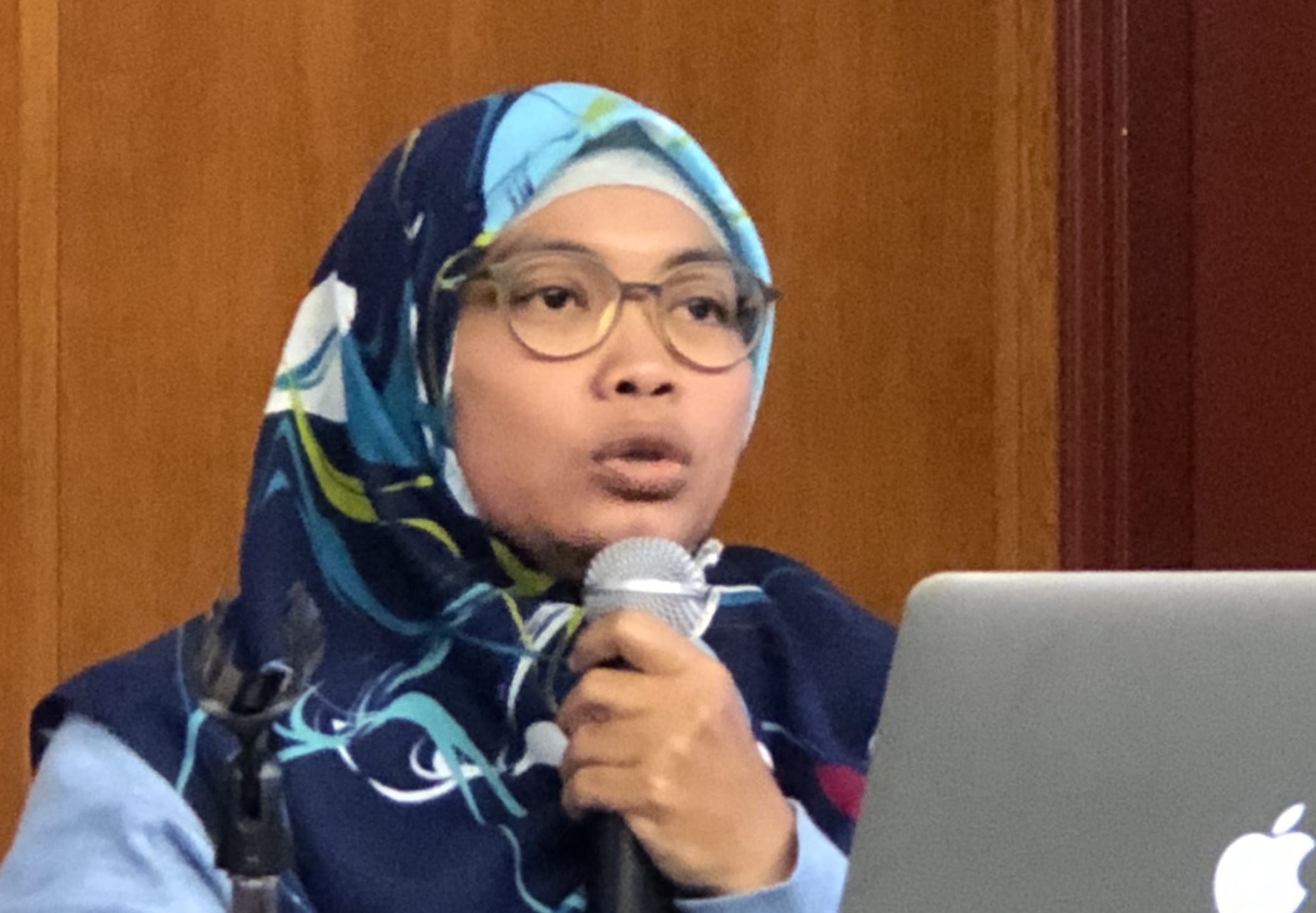Women trade unionists in Indonesia and in Honduras and other Central American countries who are tackling gender-based violence at work often start by changing a culture of patriarchy within their own unions, according to speakers at a Solidarity Center-sponsored panel today in New York City.

Alexis de Simone, Robin Runge, Nurlatifah and Izzah Inzamliyah discussed strategies for ending gender-based violence at work. Credit: Solidarity Center/Tula Connell
“Unions in the past only focused on economic issues—gender-based violence issues have never been our priority,” says Nurlatifah, board member of the 341,000-member National Industrial Workers Union Federation (SPN–NIWUF) in Indonesia. But after she and other union leaders conducted an in-depth research project among women members that showed 81 percent had experienced gender-based violence, “the union tries to mainstream this issue into every activity the union conducts.”
Nurlatifah spoke on the panel, “Gender-Based Violence at Work and Social Protections,” co-sponsored by the Global Fund for Women, one of dozens of parallel events taking place this week in conjunction with the 63rd session of the United Nations Commission on the Status of Women (CSW) meeting March 11–22. The CSW, a global policy-making body dedicated to promoting gender equality and the empowerment of women, this year is focusing on social protection systems, access to public services and sustainable infrastructure for gender equality and the empowerment of women and girls.

Alexis de Simone highlighted how women in Honduras have addressed gender-based violence in garment factories and farm fields,
In highlighting how workers are organizing and building power to confront gender-based violence in Central America, Alexis de Simone, Solidarity Center senior program officer for the Americas, says years of leadership training among women union members in Honduras’s garment and agriculture sectors has led to more than 80 women becoming union leaders. They now negotiate contracts that address key women’s issues like maternity leave, and in the agriculture sector, have developed a cross-border network that shares contract language that benefits working women.
The Solidarity Center assisted many of those programs in Central America “and now is working with our partners in 17 different countries to support women worker efforts to define gender-based violence at work and to make it a priority with their unions,” says Robin Runge, Solidarity Center senior gender specialist and panel moderator.
Runge described the global union effort to secure passage of an International Labor Organization standard (convention) that would address violence and harassment at work, with a special emphasis on gender-based violence. Final negotiations are slated for June.
Expanding the Campaign to End Gender-Based Violence at Work

The Solidarity Center is supporting training that addresses gender-based violence in 17 countries—Robin Runge. Credit: Solidarity Center/Tula Connell
Women union leaders’ work challenging and addressing gender-based violence at work by focusing first on educating members and shifting union power dynamics that long favored men plants the seed for broader outreach.
Union leaders and members are now working toward passage of legislation in Honduras to address gender-based violence, says de Simone. And in Indonesia, SPN–NIWUF partners with some 50 organizations and unions in a nationwide campaign seeking government support for the ILO convention on gender-based violence at work. Meanwhile, the Indonesian Parliament “is actively supporting a campaign on gender-based violence because of the work the campaign has done to build consciousness,” says Izzah Inzamliyah, Solidarity Center program officer in Indonesia, who also helped translate for Nurlatifah.
Lawmakers would not have even considered such legislation before women across the nation raised their voices to end gender-based violence, she says.

